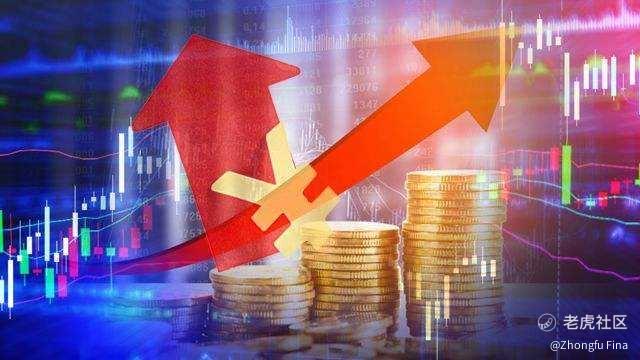Return and value
People who invest in the stock market have traditionally traded stocks up and down at high frequency to make money, but then the stock market fluctuates wildly and gambling is prevalent. In order to ease the sharp fluctuations, people of insight put forward value investment, which can get very considerable investment returns without high-frequency trading and long-term investment. Among them, there are stock splits (send to increase shares), distribution of dividends, repurchase of shares and distribution of derivatives. and other methods. Share splitting (sending and converting shares) is simply the addition, subtraction, multiplication and division of shares without any actual return. For dividend distribution, ex-rights and ex-dividends are the market price of the stock minus the dividend distribution price and deducting the dividend tax to get the market price after the dividend is distributed. It seems to be getting a cash return, but in fact, the account funds have not increased, but the account funds have decreased due to tax deductions. If the interest is not filled after ex-rights and ex-dividends and it falls, it will be a loss at all. It is said that long-term investment can be repaid by distributing dividends. Ten or twenty years of paying interest and making money, who can do such a long investment. Repurchasing shares can reduce the number of tradable shares in the market, improve the liquidity of market capital, and increase the opportunity for profitable trading. If repurchasing and canceling, it can reduce the total number of shares and increase the book intrinsic value of each share. The disadvantage is that listed companies consume too much cash flow and long-term large and small shareholders There is no cash flow to the account unless the stock is sold. Derivatives are complex, and the trading rules are complex, dangerous and difficult to grasp and have a strong gambling nature, but their flexible trading and targeted trading rules can solve various complex financial solutions of listed companies. All of the above schemes have their own advantages and disadvantages and also have good operability. After weighing the advantages and disadvantages day and night, I feel that the following schemes are for investors' reference only. 1. The repurchase rate in the financial statements can be compared to the dividend rate. The distribution of call warrants corresponds to the repurchase rate. All dividends can be used for repurchase and repurchase shares without paying dividends. 2. Listed companies repurchase shares for the company's special use (treasury shares), 3. Distribute 0 yuan subscription warrants to shareholders, and can subscribe for repurchase (treasury shares) as shareholder returns instead of paying dividends for shareholders, which can be exempted from receipts. Loss at market price before dividend tax and ex-rights and ex-dividend. 4. It is also possible to repurchase shares and cancel them, and then issue 0 yuan subscription warrants and distribute them to shareholders to subscribe for new shares. This plan is the most realistic and can be directly operated without too much discussion. 5. After the call warrants are exercised, the stock price can be repurchased (treasury stock) at the average price as the guaranteed minimum price to buy to the listed company, and the stock price higher than the guaranteed price does not need to be controlled. The distribution of call warrants is also very beneficial to major shareholders. Major shareholders can use the warrants to exercise their rights and increase their shareholding. They can also directly sell the warrants to get cash. Some people will say why not directly distribute shares to all shareholders, why is it so troublesome to subscribe for warrants to exercise? But you have to know that if the major shareholders get the distribution, the shares will be combined. According to the law of controlling shareholders and major shareholders of listed companies in China, it is quite troublesome to reduce the holdings. It is not recommended, but the major shareholders are short of cash. Returns have made shareholdings patiently volatile and shareholding structures volatile. After I wrote it, I felt a lot of emotion and said how great and passionate value investing is, but you don't even have a guaranteed return on basic interests, so what's the point of value investing?
免责声明:上述内容仅代表发帖人个人观点,不构成本平台的任何投资建议。




